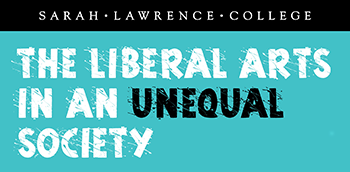Event Title
Liberal Arts Colleges, Admissions and Disguised Elite Social Reproduction
Location
Donnelley Theatre, Heimbold Visual Arts Center
Start Date
15-11-2014 10:45 AM
End Date
15-11-2014 11:30 AM
Abstract
Most private liberal-arts colleges participate in an admissions system that disguises social selection as academic selection; we claim to pick the best brains not the biggest bank accounts when in truth we conflate the two. For a high-school senior seeking to attend college, it is better to be from the bottom quartile of ability and the top quartile of family income than the reverse. When the two standardized tests for college admissions, the SAT and the ACT, are relied on, liberal-arts colleges send a message that skews their application pool and their admit list toward high SES youths. Test-optional admissions undermines but does not eradicate the high SES/liberal arts nexus. Liberal-arts colleges appear to be more obsessed with elite social reproduction than are elite families. The economics of private education and pressures from the rankings industry help to keep liberal arts colleges in the elite repro game.
Presenter Biography
Joseph A. Soares is a Professor of Sociology at Wake Forest University. His book The Power of Privilege (2007) was instrumental to Wake Forest’s decision to go test-optional in admissions. He organized a national conference on “rethinking admissions” at Wake Forest in April 2009, involving admissions deans and researcher from many universities including Berkeley, Duke, Georgia, Harvard, Howard, Texas, Virginia, and Yale. Soares has presented his critical findings on standardized tests and college admissions at regional and national conferences of the Association of College Counselors in Independent Schools, the College Board, the Southern Association for College Admission Counseling, and to the National Association for College Admission Counseling. An earlier book on universities in the UK, The Decline of Privilege (1999) won a national award from the American Sociological Association. In graduate school at Harvard University, Dr. Soares was a Krupp Fellow of the Center for European Studies; a US Congress Jacob Javits Fellow; and a Visiting Fellow at Nuffield College, Oxford University. Before moving to Wake Forest, he taught as a Lecturer at Harvard and was an assistant and associate professor of Sociology at Yale. For most of 2008, he was a member of the national education policy group for Barack Obama’s campaign for US President. Dr. Soares most recent book is an edited collection, SAT WARS: the case for test-optional admissions (2012). In 2012 and 2013, the New York Times recommended SAT WARS as one of its top ten books for summer reading on college issues. When a “new” SAT was released in March 2014, Dr. Soares was extensively quoted on that development in many major publications, including the Sunday New York Times Magazine, The Washington Post, Inside Higher Ed, and Al Jazeera America.
Streaming Media
Liberal Arts Colleges, Admissions and Disguised Elite Social Reproduction
Donnelley Theatre, Heimbold Visual Arts Center
Most private liberal-arts colleges participate in an admissions system that disguises social selection as academic selection; we claim to pick the best brains not the biggest bank accounts when in truth we conflate the two. For a high-school senior seeking to attend college, it is better to be from the bottom quartile of ability and the top quartile of family income than the reverse. When the two standardized tests for college admissions, the SAT and the ACT, are relied on, liberal-arts colleges send a message that skews their application pool and their admit list toward high SES youths. Test-optional admissions undermines but does not eradicate the high SES/liberal arts nexus. Liberal-arts colleges appear to be more obsessed with elite social reproduction than are elite families. The economics of private education and pressures from the rankings industry help to keep liberal arts colleges in the elite repro game.


